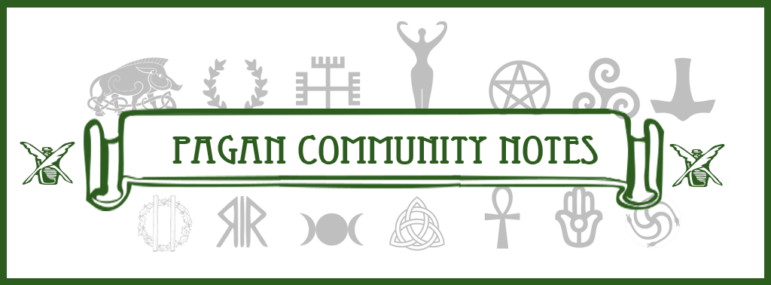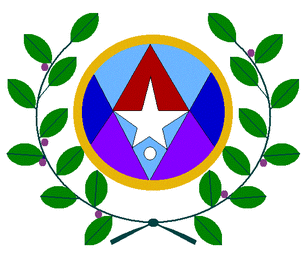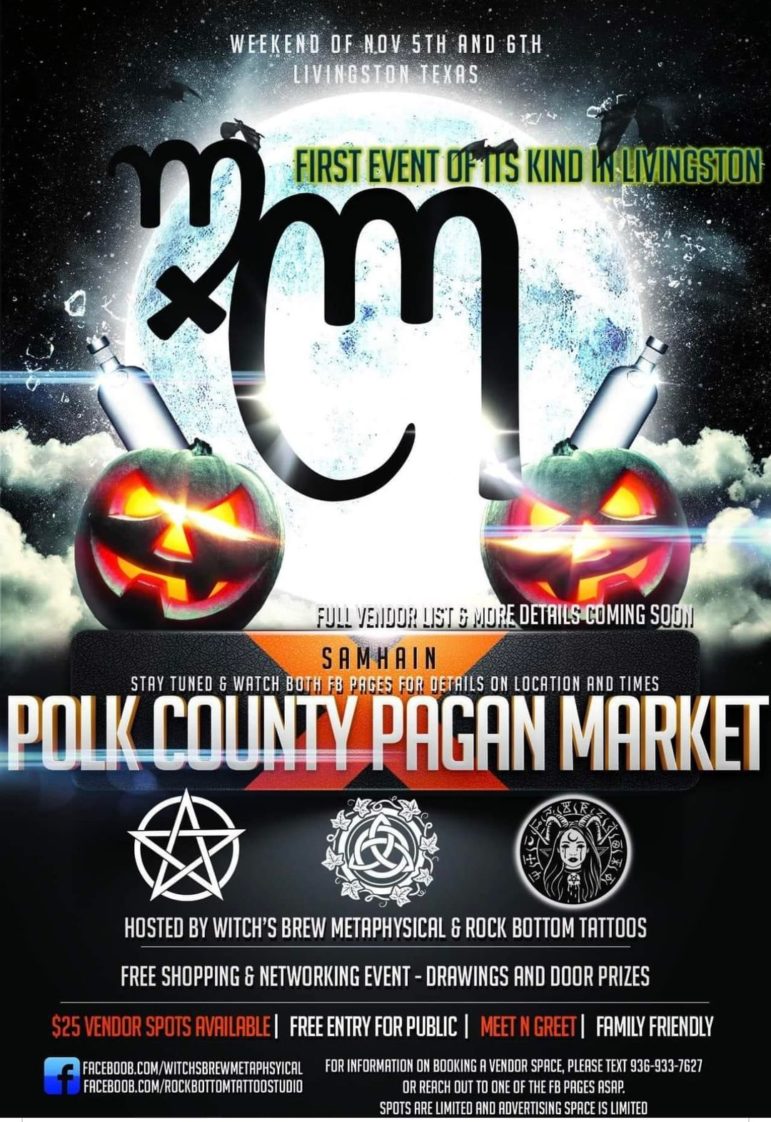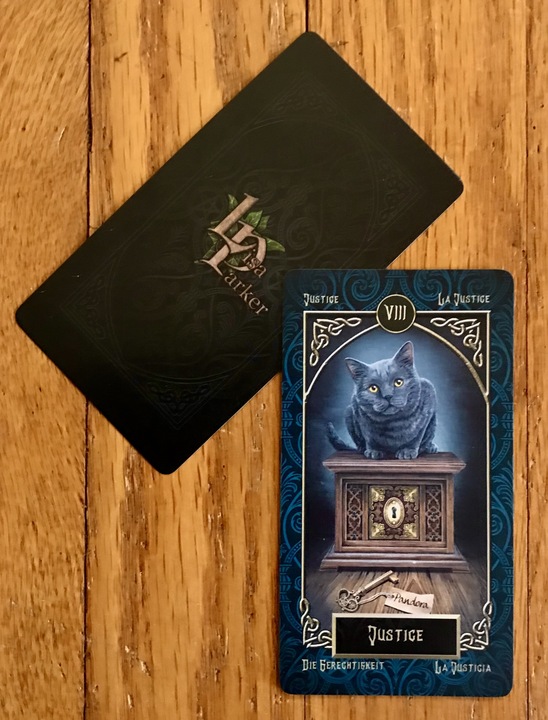
TWH – As many Pagans are aware, The Atlantic magazine published a piece by Rabbi David Wolpe on Christmas Day 2023. For those who have not read the essay, Rabbi Wolpe attacked Pagans and Paganism from a monotheistic and uninformed position.
As mentioned earlier, The Wild Hunt immediately responded to Rabbi Wolpe’s atrocious commentary. Last week in Pagan Community Notes, we also shared the responses that many Pagans have been issuing including the letters sent to The Atlantic‘s editorial staff.
Earlier this week, several social media posts noted that two scholars at Harvard Divinity School (HDS) had posted a message that prompted Rabbi Wolpe to agree to a dialogue who is also a visiting scholar at HDS. However, there was no clear confirmation from either HDS or Rabbi Wolpe the dialogue would occur.
The letter posted on HDS’ Program for the Evolution of Spirituality was titled “An Open Letter to the Pagan Community.” It was authored by Dr. Dan McKanan, Ralph Waldo Emerson Unitarian Universalist Association Senior Lecturer in Divinity, and Dr. Giovanna Parmigiani, Lecturer on Religion and Cultural Anthropology. The letter was subsequently removed from the site however, The Wild Hunt received permission from the authors to publish the letter in its entirety:
“An Open Letter to the Pagan Community”
By Dan McKanan and Giovanna Parmigiani
David Wolpe’s recent article in the Atlantic, “The Return of the Pagans,” has caused significant consternation for Pagan communities around the world. As scholars who regularly teach and write about Pagan spirituality, within the multi-faith context of Harvard Divinity School, we feel compelled to respond with a more nuanced and appreciative account of the ethics of contemporary Paganism.
We offer this response simply as individual scholars committed to the hard work of both scholarly and interfaith dialogue. Though we regard Wolpe’s essay as both uninformed and hurtful, we honor his choice to express deeply held religious convictions in a publicly accessible way. We have no desire to silence voices that we happen to find objectionable. Instead, we believe a more healing path is to bring additional information and perspective to the dialogue.
Wolpe’s article illustrates one of the most profound challenges of multi-faith education and multi-faith community: many religions define themselves in opposition to other religions. As a consequence, it can be difficult to express the highest values of one’s own faith without, implicitly or explicitly, calling attention to the flaws of other faiths. Buddhism emerged, in part, because Siddhartha Gautama experienced the Upanisadic doctrine of the soul as a source of human suffering; Islam emerged, in part, because Muhammad had come to understand Christian Trinitarianism as contrary to the monotheistic values that Christians claimed to espouse. Likewise, the great monotheistic traditions of the West (which are celebrated in Wolpe’s article) emerged in part because early Jews, Christians and Muslims regarded the forms of polytheistic religion that they had experienced as violent, unjust, licentious, or parochial. Pagan spirituality (which is critiqued in Wolpe’s article) is currently experiencing a revival in part because Pagan practitioners have experienced some forms of monotheism as sexist, authoritarian, or anthropocentric. Because conflict between monotheism and Paganism is an intrinsic part of the religious experience of many monotheists and many Pagans, it can be difficult for either monotheists or Pagans to express their own distinctive virtues without casting others as distinctly vicious.
At its best, Wolpe’s article makes an affirmative case for the distinctly monotheistic virtues that can be helpful in our current cultural and political moment. In the face of widespread worship of money and power, monotheism offers a caution against sacralizing anything that is not worthy of our ultimate loyalty. And the monotheistic doctrine of the imago dei, which holds that humans are not God but are created in God’s image, reminds monotheists not to think too highly or too lowly of themselves. These virtues are worthy of admiration even by non-monotheists.
Unfortunately, Wolpe devotes far more of his space to the vices of “pagans” than to the virtues of monotheists. This is the first way in which his article is needlessly hurtful. Though opposition to Paganism is doubtless part of the history of monotheism, it should be possible for monotheists today to cultivate their own best virtues without verbal attacks on their Pagan neighbors. And this is a challenge to practitioners of any faith today: can we hold the affirmative parts of our traditions more closely than the accompanying critiques of other faiths?
One way to do this is to frame the critiques in the most culturally specific manner possible. Judaism did not emerge in response to “paganism” writ large; it emerged in response to the specific religious and political practices of immediately adjacent cultures. But again and again, Wolpe misses the chance to be specific in his critique. Instead, he identifies Donald Trump, Elon Musk, communism, fascism, Friedrich Nietzsche, the QAnon Shaman, and Peter Singer as diverse manifestations of a single phenomenon that he calls “pagan.” This universalizing gesture is especially problematic given the inherent diversity of Paganism. Dianic Wiccans, Nordic heathens, ancient Phoenicians, and contemporary practitioners of indigenous traditions are all commonly identified as “pagan,” but surely they are not responsible for one another’s sins, much less the sins of the individuals and movements named by Wolpe.
One thing that most of those individuals and movements have in common is that they do not, in fact, self-identify as Pagan. (The QAnon Shaman may well be an exception.) The fact that Wolpe can write an entire article about “paganism” without considering the ideas and actions of the people who understand themselves as Pagans reveals an alarming lack of curiosity. It also reveals that we, as individual faculty members at Harvard Divinity School, have failed in our responsibility to Wolpe as a temporary member of our community. We have not done a good enough job of introducing him to the diverse HDS Pagans who make up such a creative part of our multifaith community.
In our roles as HDS instructors and as co-chair of the Contemporary Pagan Studies unit of the American Academy of Religion (Giovanna) and director of the Program for the Evolution of Spirituality (Dan), we are continually amazed at the intellectual contributions of Pagans in the academy and the practical work of Pagan ministerial leaders. Pagans today provide community and individual support through life transitions; empower individuals and communities around reproductive rights; minister to people of all faiths in healthcare, military, and carceral settings; and participate in multifaith activism against neoliberalism and for environmental justice. Pagan scholars are articulating new paradigms for medical ethics, critiquing their own tradition’s habits of cultural appropriation, and developing modes of botanical and zoological research that treat their objects of study as fellow persons.
Most Pagans at HDS have found ways to affirm the core values of their traditions, while also critiquing the ways they sometimes cause harm—including some of the ways identified by Wolpe. We wish that Wolpe had done likewise. Though he (rightly) identifies humility as a monotheistic virtue and acknowledges that monotheism has its own “failings,” the main message of his article is that “paganism,” not monotheism, is mostly responsible for the faults of the contemporary West. Given the cultural dominance of monotheism over the past two thousand years, this is an odd and ungenerous choice. Trump and Musk, communism and fascism all sprouted from monotheistic soil. They may not represent the best of monotheism. But monotheists who find them troubling would do well to begin their analysis with a careful look in the mirror.
No sources appeared to include an invitation to a dialogue. The Wild Hunt contacted Rabbi Wolpe about his participation in a dialogue. He responded, “Yes I said I would certainly agree to a dialogue.” He further added, “Although I believe my comments to have been misread, I certainly don’t write to hurt people and hope through dialogue to reach higher understandings on all sides.”
TWH asked if the dialogue would be open to participation from the Pagan community. Rabbi Wolpe wrote, “I offered to have a private discussion with the woman who contacted me from Cherry Hill first, and then see where we go from there.” Regarding the open letter about a possible dialogue at Harvard, Rabbi Wolpe referred TWH to his colleagues at HDS, “I don’t know who is or is not invited to Harvard discussion.”
Dr. McKanan told TWH that he and his colleague Dr. Parmigiani “are indeed in dialogue with Rabbi Wolpe about a possible event at Harvard Divinity School, in which he would engage in dialogue with members of the Pagan community here.” He noted that his current expectation is that the dialogue would be limited to members of the HDS community and that there were no further details at this time.
The Wild Hunt is grateful for the recent support.
The Wild Hunt is very grateful to our readers for your recent financial support and amazing words of encouragement. We remain one of the most widely-read news sources within modern Paganism, and our reporters and columnists remain dedicated to a vision of journalism for and about our family of faiths.
As a reminder, this is the type of story you only see here. This is how to help:
Tax Deductible Donation | PayPal Donations | Join our Patreon
You can also help us by sharing this message on your social media.
As always, thank you for your support of The Wild Hunt!
![]()
Do you have news to share with our community?
Announcements? Elevations? Events?
Let us know at pcn@wildhunt.org.
Elevations

Correllian Witan Council seal
In a monumental vote, the Correllian Witan Council has fulfilled its primary purpose for the first time in its history! The Witan Council is an advisory body made up of the Heads, Elders, Officers, Temple Heads, and other notables of the Tradition.
The Witan Council serves as a kind of parliament that can be called together at the discretion of the Tradition leadership to advise on matters of interest or importance to the Tradition.
Voting membership in the Witan Council is held by all members of the Correllian Council of Elders, all fully seated Temple Heads in the Tradition, and other notables considered worthy of membership by the Heads of the Tradition.
On December 1st year 23 Aquarius, Lady Alyssa Kemp and Lord Phoenix Coffin-Williams were Officially Confirmed as First Priestess and First Priest of the Correllian Nativist Tradition.
In the past, our First Priesthood retired in office and named Regents to act in their stead until they crossed over or became incapacitated. This vote ended the Regency and permanently installed Lady Alyssa and Lord Phoenix as the Joint Heads of the Correllian Tradition.
With this necessary change, Lord Donald Lewis High-Correll and Lady Krystel High-Correll remain our Honored Elders and First Priesthood Emeritus. Able to enjoy their well-deserved retirement without the pull of the daily duties of the sitting First Priesthood. It is with both sorrow and joy that we announce this unprecedented change to our structure.
Join us on May 18th, year 24 Aquarius as we Celebrate the Joint Investiture of our new First Priesthood at the Lustration of the Ancestors in Danville Illinois!
![]()
Upcoming Events
 The next Earth-based Spirituality Action Team (EBSAT) will be meeting on January 8 titled “After COP 28, what now? The meeting is via Zoom with the passcode of CCL.
The next Earth-based Spirituality Action Team (EBSAT) will be meeting on January 8 titled “After COP 28, what now? The meeting is via Zoom with the passcode of CCL.
EBSAT is for “anyone who keeps the sacred Earth at the center of their practice. We see action on climate change as an urgent moral imperative. We aim to reach out to our global communities and recruit volunteers for the Citizens’ Climate Lobby. We recognize and honor the spiritual nature of climate work.”
The Earth-based Spirituality Team is for Pagans, Wiccans, Witches, Occultists, Druids, Gaians, Goddess-worshippers, Earth-worshippers, Animists, Deep Ecologists, Scientific Pantheists, Creation-centered Christians, Secular Humanists, and Religious Naturalists. We enthusiastically welcome indigenous people, followers of African Diasporic Traditions, shamanic practitioners, and anyone who shares our reverence for Mother Earth.
![]()
 The Polk County Pagan Market (PCPM) has announced dates for 2024 that we are excited to share.
The Polk County Pagan Market (PCPM) has announced dates for 2024 that we are excited to share.
More Pagan Outreach, and more educational workshops all at no cost, we have added LGBTQIA+ reps so that we may do more in that area as well. We are also going on the road to host a variety of “On The Road ” events for 2024 and 2025.
In 2023, Polk County Pagan Market became a center of debate between both Pagans and Christians throughout the state of Texas as a local pastor threatened the market with a backlash. The next Polk Pagan will take place at the Imbolc Festival on January 27, 2024, in Livingston TX at Pedigo Park. Following that event, the Ostara Festival will take place on March 9, 2024, in Livingston TX at the same location.
![]()
Tarot of the Week by Star Bustamonte*
 Deck: Tarot Familiars, by Lisa Parker, published by Fournier.
Deck: Tarot Familiars, by Lisa Parker, published by Fournier.
Card: Major arcana, (VIII) Justice (Note: While the eighth card (VIII) in the Major arcana is often Strength, this deck places Justice as the 8th and Strength as the eleventh (XI).
The next seven days have the potential to highlight and support endeavors that are harmonious, balanced, and reflect positive intentions. Additionally, being rewarded and experiencing a sense of satisfaction for past work or decisions are possible.
Conversely, the inability to take a stance is likely to result in imbalance, and even provide fodder for false assumptions and accusations.
*Note: Amelia, a not-so-shy feline resident and companion to Star, assisted with this reading by offering random paw prints and helpful key pressing.
The Wild Hunt is not responsible for links to external content.
To join a conversation on this post:
Visit our The Wild Hunt subreddit! Point your favorite browser to https://www.reddit.com/r/The_Wild_Hunt_News/, then click “JOIN”. Make sure to click the bell, too, to be notified of new articles posted to our subreddit.